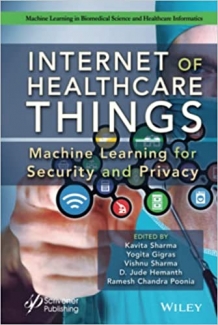جلد سخت سیاه و سفید
Product details
- Publisher : Oxford University Press (May 2, 2022)
- Language : English
- Hardcover : 216 pages
- ISBN-10 : 0190079851
- ISBN-13 : 978-0190079857
کتاب The Uses of Delusion: Why It's Not Always Rational to Be Rational
A fascinating examination of delusional thinking and how it might benefit health, relationships, and wellbeing.
Although reason and rationality are our friends in almost all contexts, in some cases people are better off putting reason aside. In a number of very important situations, we benefit by not seeing the world as it is, and by not behaving like logic-driven machines. Sometimes we know we aren't making sense, and yet we are compelled to act against reason; in other cases, our delusions are so much a part of normal human experience that we are unaware of them. As intelligent as we are, much of what has helped humans succeed as a species is not our prodigious brain power but something much more basic.
The Uses of Delusion is about aspects of human nature that are not altogether rational but, nonetheless, help us achieve our social and personal goals. Psychologist Stuart Vyse presents a lively, accessible exploration of the psychological concepts behind "useful delusions", fleshing out how delusional thinking may play a role in love and relationships, illness and loss, and personality and behavior. Along the way Vyse draws on the work of William James, Daniel Kahneman, and Joan Didion - who wrote about her compelling belief that her husband, though deceased, would soon return to her. Throughout, Vyse strives to answer the question: why would some of our most illogical beliefs be as helpful as they are? The concluding chapter offers an explanation grounded in natural selection - the ability to fool ourselves, Vyse argues, has actually helped us to survive. In the final pages of The Uses of Delusion, Vyse offers suggestions for determining when reason should rule and when intuition and
emotion should be allowed to take over.
منابع کتاب کتاب The Uses of Delusion: Why It's Not Always Rational to Be Rational
یک بررسی جذاب از تفکر هذیانی و اینکه چگونه می تواند برای سلامتی، روابط و رفاه مفید باشد.
اگرچه عقل و عقلانیت تقریباً در همه زمینه ها دوستان ما هستند، در برخی موارد افراد بهتر است عقل را کنار بگذارند. در تعدادی از موقعیتهای بسیار مهم، ما با ندیدن جهان آنطور که هست، و رفتار نکردن مانند ماشینهای منطق محور سود میبریم. گاهی اوقات می دانیم که معقول نیستیم، و در عین حال مجبوریم که برخلاف عقل عمل کنیم. در موارد دیگر، هذیانهای ما به قدری بخشی از تجربه عادی انسان هستند که ما از آنها بیخبریم. همانطور که ما باهوش هستیم، بسیاری از چیزهایی که به انسان ها به عنوان یک گونه کمک کرده است، قدرت فوق العاده مغز ما نیست، بلکه چیزی بسیار اساسی تر است.
کاربردهای توهمدر مورد جنبه هایی از طبیعت انسان است که کاملاً عقلانی نیستند اما با این وجود به ما کمک می کنند تا به اهداف اجتماعی و شخصی خود برسیم. استوارت وایس، روانشناس، کاوشی پر جنب و جوش و در دسترس از مفاهیم روانشناختی پشت «هذیانهای مفید» ارائه میکند و نشان میدهد که چگونه تفکر هذیانی ممکن است در عشق و روابط، بیماری و از دست دادن، و شخصیت و رفتار نقش داشته باشد. وایس در طول مسیر از کارهای ویلیام جیمز، دانیل کانمن و جوآن دیدیون استفاده میکند - که در مورد اعتقاد قانعکنندهاش نوشته بود که شوهرش، اگرچه مرده است، اما به زودی نزد او بازخواهد گشت. Vyse در سراسر جهان تلاش می کند به این سوال پاسخ دهد: چرا برخی از غیرمنطقی ترین باورهای ما به همان اندازه مفید هستند؟ فصل پایانی توضیحی مبتنی بر انتخاب طبیعی ارائه میدهد - توانایی فریب دادن خودمان، وایس استدلال میکند، در واقع به ما برای زنده ماندن کمک کرده است.کاربردهای هذیان ، Vyse پیشنهادهایی را برای تعیین اینکه چه زمانی عقل باید حاکم باشد و چه زمانی باید به شهود و
احساسات اجازه داده شود که بر آن مسلط شوند، ارائه می دهد.
































ارسال نظر درباره کتاب The Uses of Delusion: Why It's Not Always Rational to Be Rational